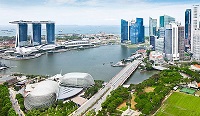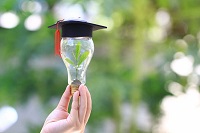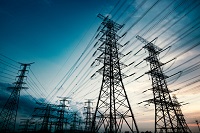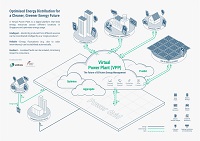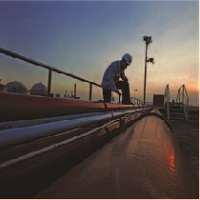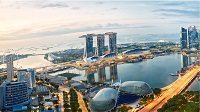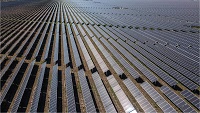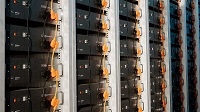For more information, please refer to:
A Singapore Government Agency WebsiteHow to identify
Official website links end with .gov.sg
Government agencies communicate via .gov.sg websites
(e.g. go.gov.sg/open).Trusted websites
Secure websites use HTTPS
Look for a lock ( )or https:// as an added precaution. Share sensitive information only on official, secure websites.
- The Singapore Government is following up on the findings from two feasibility studies on low-carbon hydrogen and on carbon capture, utilisation and storage (CCUS) technologies respectively. As an alternative energy disadvantaged country, we expect these technologies to play important roles in our transition to a low-carbon future. They will help us in our effort to meet our commitments and ambitions in climate action, as set out in our enhanced 2030 Nationally Determined Contribution and Long-Term Low-Emissions Development Strategy[1], and the Singapore Green Plan 2030[2].
- The “Study of Hydrogen Imports and Downstream Applications for Singapore” was jointly commissioned by the National Climate Change Secretariat (NCCS), Singapore Economic Development Board (EDB) and Energy Market Authority (EMA); while the study on “Carbon Capture, Storage, and Utilisation: Decarbonisation Pathways for Singapore’s Energy and Chemicals Sectors” was jointly commissioned by NCCS and EDB. They highlighted the pathways for low-carbon hydrogen and CCUS that could be relevant for Singapore, and the barriers to deployment that would need to be overcome. Both studies were able to garner valuable stakeholder feedback from the industry and research community.
- The key findings of the two studies were as follows:
- “Study of Hydrogen Imports and Downstream Applications for Singapore”
Hydrogen has the potential to diversify Singapore’s fuel mix towards low-carbon options for electricity generation, heavy transportation and some industrial processes. Given Singapore’s limited renewable energy resources, it is challenging for Singapore to produce green hydrogen at scale using domestic green electricity. As such, Singapore would need to explore various supply pathways for price-competitive low-carbon hydrogen. More details can be found in Annex A. - Study on “Carbon Capture, Storage, and Utilisation: Decarbonisation Pathways for Singapore’s Energy and Chemicals Sectors”
The study identified carbon dioxide emissions, mainly from power plants and industrial facilities, that could be captured and stored in suitable sub-surface geological formations (i.e. CCS) or converted into useful products (i.e. CCU). For CCU, some of the more promising pathways include (i) mineralisation, to use waste-based feedstock or natural minerals to produce aggregates for reclamation or structural and non-structural building use, (ii) conversion to chemicals and synthetic fuels, such as kerosene and methanol, which have the potential to be used as fuel for aircraft and marine vessels.More details can be found in Annex B.
- “Study of Hydrogen Imports and Downstream Applications for Singapore”
- The findings will be used to inform on existing Research, Development and Demonstration (RD&D) efforts, such as the S$49 million Low Carbon Energy Research (LCER) Funding Initiative (FI)[3], a multi-agency effort involving the Agency for Science, Technology and Research (A*STAR), EDB, EMA, NCCS and the National Research Foundation (NRF); and to guide private sector consortiums such as those led by Keppel DC[4], Chiyoda[5], and Itochu[6] on the deployment of low-carbon solutions, and the development of the hydrogen supply chain. The Singapore Government welcomes more of such partnerships, and opportunities to pilot new technologies in sectors including maritime, aviation, mobility, industry and power sectors.
- Following the release of the both reports, Singapore will also seek to partner other countries to advance emerging low-carbon technological solutions. Such collaborations could include joint contributions to international regulations, standards and certification on these emerging technologies, and participation in joint RD&D and test-beds. To date, Singapore has signed a Memorandum of Understanding (MOU) with Australia on low-emissions technologies and an MOU with Chile on low-carbon hydrogen, and is actively in discussions with other like-minded countries.
Annex A: Whole-of-Government’s Assessment of the Hydrogen Feasibility Study
Annex B: Key Findings from the CCUS Study
Annex C: Factsheet on Singapore’s Vision to be a Bright Green Spark
Annex D: Factsheet for Singapore’s Long-Term Low-Emissions Development Strategy
Annex E: Singapore Green Plan
[1] More information on Singapore’s Long-Term Low-Emissions Development Strategy can be found in Annex D.
[2] More information on the Singapore Green Plan 2030 can be found in Annex E.
[3] More information (including topics of interest) can be found at https://www.a-star.edu.sg/Research/funding-opportunities/lcer-fi-grant
[4] Keppel Data Centres announced an MoU with Kawasaki Heavy Industries, Mitsui O.S.K. Lines, Vopak LNG, and Linde to study the commercial viability of a liquefied hydrogen supply chain in May 2021.
[5] Chiyoda, Mitsubishi, PSA, Jurong Port, City Gas, Sembcorp, SLNG (with the support of MPA and NRF) signed an MoU to develop a business case for the technical and commercial feasibility of hydrogen import to Singapore.
[6] Itochu Corp signed an MoU with Itochu Enex, Vopak, Pavilion Energy, Mitsui OSK line, and Total on the joint development study of ammonia as a new marine fuel in Singapore.
